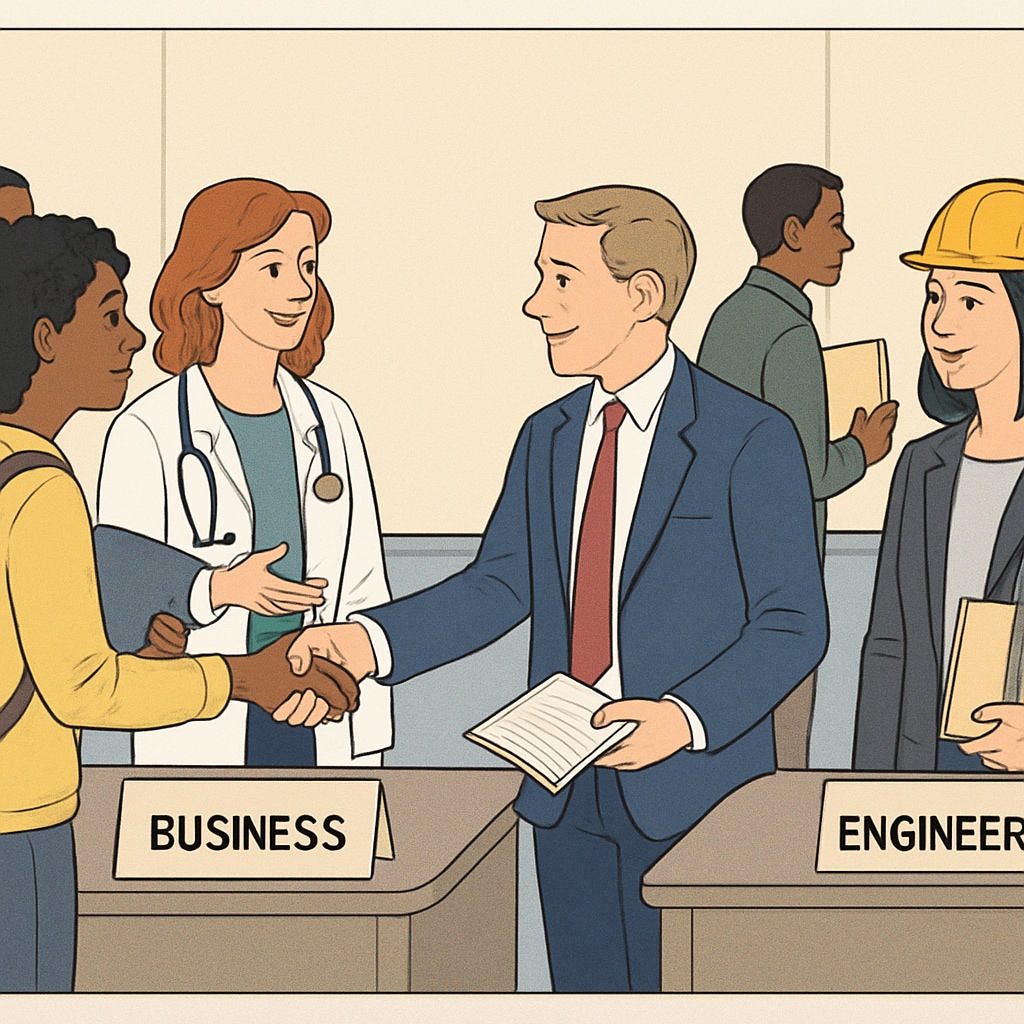The issues of lack of motivation, interest in college majors, and self-doubt are becoming increasingly common among university students. Many feel disconnected from their chosen fields of study, leading to decreased academic performance and uncertainty about their future. This crisis often traces back to gaps in career exploration and interest development during the K12 educational stage. Addressing these gaps can help prevent university students from falling into this cycle of disengagement.
Understanding the Root Cause: Interest Development in K12 Education
One major contributor to the lack of interest in college majors is insufficient career exploration during the K12 years. Many students are pushed toward academic excellence but are rarely guided in identifying their personal interests or understanding various career paths. As a result, when it’s time to select a college major, they often choose based on external factors like societal pressure or parental expectations rather than genuine enthusiasm.
To combat this, schools must implement structured career planning programs. For example, introducing vocational guidance counselors and offering workshops on different industries can expose students to diverse options. This ensures that their decisions about college majors are informed and aligned with their interests.

Strategies to Build Motivation and Interest in Higher Education
In addition to addressing the K12 phase, universities must also play a role in rekindling students’ enthusiasm for their majors. Institutions can incorporate interdisciplinary courses and experiential learning opportunities to help students discover connections between their studies and real-world applications. Furthermore, mentorship programs can provide personalized support, helping students navigate challenges and gain confidence in their chosen fields.
Practical initiatives that universities can consider include:
- Hosting career fairs with representatives from various industries.
- Offering elective courses that allow exploration outside the student’s major.
- Encouraging internships or co-op programs to provide hands-on experience.

The Role of Parents and Educators in Career Planning
Parents and educators are pivotal in shaping students’ attitudes toward career exploration. Parents should foster open conversations about their children’s interests without imposing their own preferences. Similarly, educators can integrate career-oriented activities into the curriculum, such as project-based learning focused on real-world problems or guest lectures from industry professionals.
For example, a high school biology teacher might invite a medical researcher to discuss their work, inspiring students who may consider healthcare professions. These early exposures can ignite passion and provide clarity before students enter college.
Conclusion: Building a Systematic Career Planning Ecosystem
Preventing the lack of motivation, interest in college majors, and self-doubt requires a joint effort across K12 education, universities, and families. By fostering early career exploration and creating opportunities for students to connect their studies to personal interests and professional goals, we can reduce the prevalence of disengagement in higher education.
Ultimately, a systematic approach to career planning ensures that students not only choose majors they are passionate about but are also equipped with the motivation and confidence to succeed.
Readability guidance: Use concise paragraphs and lists to summarize key points. Ensure smooth transitions using words like “however,” “therefore,” and “for example.” Avoid overly technical jargon to maintain accessibility.


